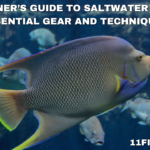Want to reel in the catch of a lifetime? Your secret weapon is choosing the right bass fishing lure. Learn the tips and tricks to attract fish, whether it’s in shallow waters or during bright daylight, and make your next fishing trip unforgettable.
Choosing the right bass fishing bait isn’t just about grabbing the first lure off the shelf. It’s a strategic decision that can make or break your day on the water. Whether you’re aiming to win a tournament or land a trophy bass, understanding the art of selecting the perfect lure is key.

Why Lures Matter in Bass Fishing
Fishing lures do more than just attract fish; they mimic prey, excite predatory instincts, and increase your chances of a big catch. From shallow-water swimmers to fast-moving predators, there’s a lure tailored for every situation.
Some lures are designed to simulate real fish, using flashy colors, lifelike movements, and even wobbling effects to draw attention. Others use rotating or shaking motions to mimic injured prey, triggering a feeding frenzy among bass.
Types of Bass Fishing Lures
- Small Fish Lures
Ideal for shallow waters and smaller species, these lures are lightweight and designed to move subtly to attract fish without scaring them away. - Big Fish Lures
Built to withstand aggressive bites, these are bulkier and often feature sharp curves for added movement. Pair them with larger hooks to maximize your catch. - Fast Swimming Lures
Perfect for energetic fish in open waters. Their streamlined design ensures smooth, swift movement, enticing even the wariest bass. - Colorful Lures
Vibrant hues like firetiger, rainbow, or gold-plated finishes make lures highly visible, even in murky water. Multi-colored designs often outperform plain ones, as they catch a fish’s eye more effectively.
Size and Weight Matter
Using the wrong-sized lure can cost you a catch. For example, oversized lures may scare smaller fish, while tiny lures won’t tempt larger bass. Choose lures proportionate to your target species and match them with appropriately sized hooks.
Weight also plays a role. Lightweight lures spin effortlessly, creating a lifelike motion, while heavier lures can reach deeper waters, appealing to fish that linger below the surface.
Advanced Features to Look For
Modern lures come with added features like:
- 3D Designs: Life-like fish shapes and sparkling eyes make them irresistible.
- Blood Effects: Some anglers apply artificial blood to crankbaits to simulate injured prey, triggering a feeding response.
- Wobbling Actions: Tight designs with wobbling effects are perfect for shallow waters, as they mimic natural swimming patterns.

Pro Tips for Better Results
- Experiment with Colors: Fish are visual hunters, so switch colors based on water clarity and weather. Bright colors work well in clear water, while darker shades excel in murkier conditions.
- Add Scent: Using scented baits can enhance the lure’s appeal, especially when targeting larger or more cautious fish.
- Focus on Technique: It’s not just about the lure; your retrieval technique can make a significant difference. Practice varying your speed and movement to mimic prey behavior.
Final Thoughts
Selecting the right bass fishing lure is about understanding your target and adapting to the environment. From choosing the correct size and weight to experimenting with features like colors and scents, each decision brings you closer to reeling in that dream catch.
So, what are you waiting for? Grab your gear, hit the water, and put these bass fishing tips into action. Whether you’re a beginner or a seasoned pro, the right lure is your ticket to a fishing adventure like no other.









